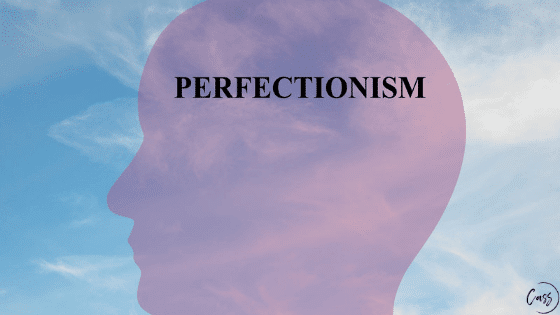
Do you consider yourself to be a perfectionist?
Many people do, and in fact most consider it to be an admirable quality. Striving for excellence and holding yourself to high standards can be a good thing. Being orderly, organised and neat as well as paying attention to details – these are all positive qualities and are considered to be what we psychologists call ‘adaptive’. In other words, they serve a useful purpose!
For some people though, those high standards and fixation with details can be a symptom of an unhealthy kind of perfectionism. Maladaptive perfectionism is driven by a deep feeling that nothing you ever do will be good enough. It’s usually accompanied by relentless self-criticism and can result in not putting any work out into the world because of the crippling fear of judgement, rejection or failure.
Unhealthy perfectionism can lead to anxiety and depression due to the constant trying and failing to meet your own unrealistic expectations. Perfectionism can show up in any area of your life – at work, in your creative efforts, your body shape, home or your relationships.
The antidote to perfectionism is to wholeheartedly embrace the concept of ‘good enough’. And in order to be comfortable putting out good enough work, you first have to start with the sure knowledge that YOU are good enough; with all your flaws and imperfections. You have to know with certainty that even if you screw something up, it doesn’t mean YOU are a screw-up.
Until you are able to know this for sure, you’re at risk of being stuck in the painful grip of ‘never good enough’ and that’s a horribly confined space in which to live. What’s more, the world may never know the beauty and value you have to offer if your unrelenting standards prevent you from sharing it with others. If this sounds like you, I offer the following tips to help you overcome perfectionism:
Focus on what you do well
Perfectionists are always on the lookout for flaws or mistakes. Because of this negative bias, they minimise, dismiss or completely fail to notice all the things they are doing really well while they instead focus on every tiny thing that is not perfect. Take time each day to deliberately notice your positive achievements and successes. Begin to pay attention also to the examples of imperfection that are all around you that you still love and appreciate.
Remember that done is better than perfect.
As the saying goes, ‘Aim for progress, not perfection’. Press publish on that blog post. Submit the assignment. Go to bed even if the dishes aren’t done. The only people who will judge you for not being ‘perfect’ are other perfectionists projecting their own fears onto you, and while your ‘good enough’ work is making a difference in the world, their ‘not quite ready yet’ is helping no-one.
Share your struggles
Being afraid to talk about mistakes or expose your vulnerability is common if you have a false belief that perfection is the only option. Talking about your personal struggles, whether privately or publicly, allows people to connect with the real you (not the fake, ‘polished’ you), and gives you valuable real-time feedback that you are appreciated and accepted just as you are.






